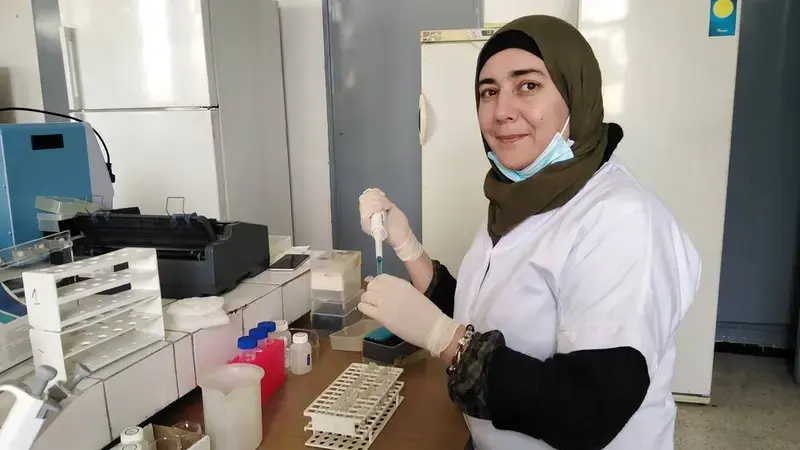ICARDA Ph.D. Student Wins Best Poster Award

ICARDA is thrilled to announce that researcher Médiha Khamassi Khbou, studying her PhD in collaboration with ICARDA and lecturer at the Ecole Nationale de Médecine Vétérinaire in Tunisia, has received the Best Poster Presentation award during the latest 14th International Symposium on Ticks and Tick-borne Diseases held in March 2021 and sponsored by tick-radar GmbH (Berlin, Germany). The winning poster is part of a recently published open-access paper in the Animals Journal on tick infestation and tick-borne infection in indigenous sheep breeds in Tunisia.
Mrs. Khbou's study assesses differences in tick infestation among the main sheep breeds in Tunisia. In this region, sheep infested with ticks and exposed to tick-borne pathogens are at high risk of developing severe diseases, which reduces market access opportunities and decreases income, especially for poor farmers[M1]. Some pathogens are transmissible to humans and may pose a significant public health concern. To increase livestock resilience, searching for breeds that are naturally and genetically resistant to ticks' infestation is a healthier and environmentally friendly option to the overuse of pesticides and drugs.
For the wider study on which ICARDA's and the national school of veterinary medicine of Sidi Thabet collaborated, nearly four hundred and fifty adult female sheep were repeatedly examined and sampled from two breeds: Barbarine and Queue Fine de l'Ouest (QFO). They were distributed in flocks all over the country for almost two consecutive years. Collected ticks were identified at their species level, and pathogens were detected using Polymerase Chain Reaction (PCR).
The results show that the Tunisian Queue Fine de l'Ouest sheep breed is less infested by ticks, and none was infected by tick-transmitted pathogens compared to the Barbarine breed, even when kept under the same herd's management and environmental conditions. These preliminary findings result from observing the difference in tick infestation between the two breeds. However, research is still underway as researchers are trying to identify differences between the two breeds in susceptibility to ticks and tick-transmitted pathogens at the genetic level. If the genetic investigations support the differences in the preliminary observations, the study would be novel in generating new knowledge to characterize ticks and tick-borne diseases in sheep, influence the design of breeding programs, and be a basis for main actors' recommendations in the field of animal health.
A high priority for ICARDA under the umbrella of CGIAR, the world’s largest agricultural research network, is to train researchers from host countries to ensure our innovations are tailored correctly to the setting and challenges, as well as harness local knowledge.
